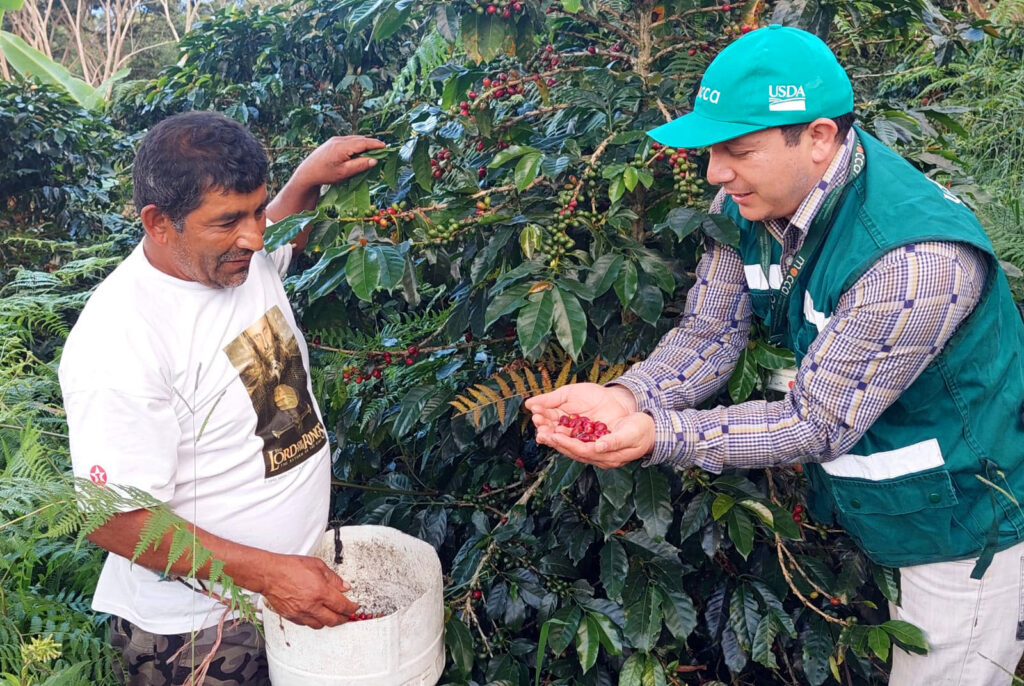- Husband and wife coffee growers José Salazar and Jesús Rodríguez have reduced the incidence of coffee berry borer in their coffee plantation by implementing the good pest management and residue management practices learned at MOCCA.
MOCCA is a 7-year initiative funded by the United States Department of Agriculture (USDA) through its Food for Progress Program, which seeks to improve agricultural productivity and expand trade in agricultural products. The MOCCA project is being executed by a consortium led by TechnoServe.
We went deep into the Amazon region of Peru, to the province of Rodriguez de Mendoza, to meet José Salazar and his wife Jesús Rodríguez, two coffee producers who live in a small community in the so-called “Peruvian jungle belt”, a geographical area characterized by its cloud forests and a megadiverse ecosystem that preserves unique species of flora and fauna.
“We have been coffee growers for 22 years, and have dedicated to this crop because it produces income to support our children,” says Doña Jesús, while closing the cage of the chickens on their farm.
In 2022, the couple joined the MOCCA program motivated to acquire new knowledge that would allow them to improve the productivity of their coffee plantation. They participated in training modules on fertilization, pest and disease management, selective harvesting, waste management, among others.
“We have reduced the incidence of CBB in our coffee plantation by 85% thanks to the good pest management that we are implementing today. Before we did not know how to reuse the coffee residues and we used to apply the pulp to the plants without handling it, which contributed to the increase of the CBB and generated losses for us”.
José Salazar
Coffee producer
Rodríguez de Mendoza, Perú

One of the greatest advances recognized by coffee growers is that with the help of the MOCCA program technicians, they implemented a system for the treatment of coffee honey water on their farm, using an infiltration well with Vetiver plants.
Vetiver is a plant that, thanks to its deep root system, has the capacity to filter the honey water resulting from coffee washing, preventing it from reaching clean sources of organic matter and becoming a source of contamination or a focus of disease.
The CAFE Alliance and MOCCA projects, both led by TechnoServe, are promoting the use of Vetiver in Peru for the treatment of coffee honey water, which represents 25% of the post-harvest pollutant load and which, if left untreated, threatens the ecosystems of coffee farms.
“With MOCCA’s help, we are properly managing coffee waste and making the most of it to produce organic fertilizers. Before, we did not find any effective solution to treat honey water and we did not know what to do with this waste. We have obtained good results with the well with Vetiver plants to avoid contamination and care for the environment”, comments Doña Jesús Rodríguez.
For more information on the treatment of honey water and the installation of Vetiver infiltration wells, please consult our manual of good practices for the management of coffee waste at www.mocca.org/recursos/cafe







